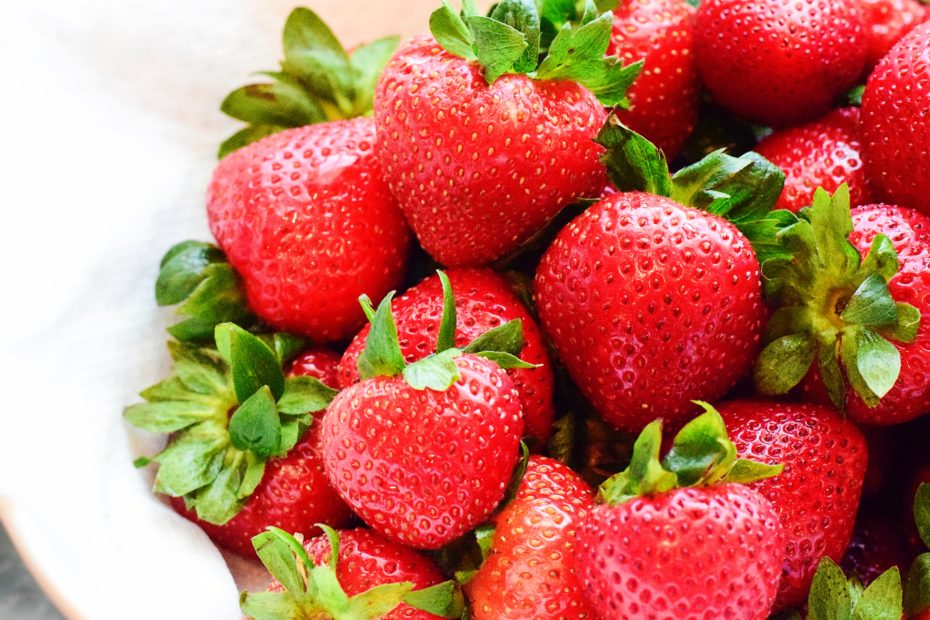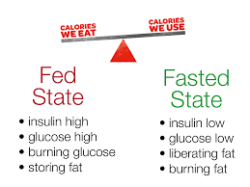
Let’s Talk About Sugar
 Unfortunately, in today’s world we have an unbelievable excess of processed, junk food that many believe has some nutritional value. Our food industry is a giant and most foods created today are designed to taste good and leave you wanting more. The problem is that most of these processed foods will only lead to inflammation once you swallow them! In our initial office visit for the HCG Diet, we talk a lot about eating to nourish our bodies on a cellular level. I love teaching my patients about the impact of eating sugar, spiking insulin and outlining the physiology behind storing fat!
Unfortunately, in today’s world we have an unbelievable excess of processed, junk food that many believe has some nutritional value. Our food industry is a giant and most foods created today are designed to taste good and leave you wanting more. The problem is that most of these processed foods will only lead to inflammation once you swallow them! In our initial office visit for the HCG Diet, we talk a lot about eating to nourish our bodies on a cellular level. I love teaching my patients about the impact of eating sugar, spiking insulin and outlining the physiology behind storing fat!
Did you know:
• Sugar is the #1 dietary contributor to heart disease
• Sugar contributes to inflammation in the artery walls
• Sugar consumption leads to diabetes, obesity, and heart disease.
• High sugar intakes drive up the hormone insulin, which raises blood pressure, increases cholesterol and stores fat.
• Sugar and processed carbs raise triglycerides, which are an important and independent risk factor for heart disease.
• Sugar in the bloodstream can stick to proteins creating damaging and toxic molecules called advanced glycation end products (AGE’s).
The Story Behind Insulin
Insulin is a wonderful hormone in our body! Insulin is a messenger in the body that is made by the pancreas. When blood sugar is elevated, insulin helps to get some of that sugar out of the blood stream and into your cells. Up until 150 years ago when having food around was unpredictable insulin would increase if we had a “feed” with starchy veggies or fruit and allow our bodies to store some fat for the famine that may happen later in the winter. Today, insulin keeps us storing but the famine never comes. This is why our society is so over-weight!
When our blood sugar is elevated, insulin levels rise. When insulin is high it inhibits fat stores from being broken down. As insulin levels elevate no fat will be burned—only sugar. On the flip side, if insulin is low, fat will be used exclusively as fuel. This is why diets low in carbs and sugars often lead to weight loss. The HCG Diet works exactly in this way.
Here are a few of insulin’s main jobs in the body:
1. It acts as a key to open the door on the cell receptor to allowing cells to get sugar
2. It lowers excess sugar in the bloodstream after we eat
3. It stores sugars in the liver and muscles in a chain called glycogen
4. It converts excess sugar to fat and cholesterol. Insulin puts us in a fat storage mode.
5. It allows protein (amino acids) into the cell
6. It allows trace minerals into cells
 Insulin makes fat!!!! Also, when insulin is present the body cannot use its own fat stores for fuel. After reaching
Insulin makes fat!!!! Also, when insulin is present the body cannot use its own fat stores for fuel. After reaching
Insulin stores fat all over the body with a concentration in your midsection. In fact, your belly size is the best measurement of how much insulin you have in your bloodstream.
The faster the body breaks food into sugar, the higher the insulin response. There is even a scale, called the glycemic index, that measures this spike of sugar in the blood. Carbohydrates and sugars are the main trigger of insulin in the diet. When we eat carbohydrates, they are quickly turned into sugar and the blood glucose levels rise. This rise in blood sugar triggers insulin to come on board to lower the blood sugar level.
In general, our body is meant to have about 1 tsp of sugar in the blood. This would be around 100 mg/dl. This little bit of sugar could even come from non-carb sources such as protein. Today, many people consume 31 tsp of sugar daily and this is 31 x more than we need AND therefore insulin has to work 31x harder.
The American Diabetes Association (ADA) recommends foods that equal over over 50 teaspoons of sugar per day.
Insulin Resistance as a Protective Mechanism
Over time, an elevated blood sugar and insulin level causes your cells to resist insulin. Your body considers sugar to be toxic and will protect you by stopping it from entering into your cells. This is called insulin resistance. It is a viscious cycle as your cells become deprived of glucose for fuel. and therefore the cells feel hungry and carb cravings go through the roof. The cells need fuel but cannot get it, therefore, the pancreas has to compensate by producing more insulin so the cells can get potentially a little more fuel. Insulin resistance makes your pancreas work extremely hard. In fact, insulin resistance forces the pancreas to produce five to seven times more insulin that a person with a healthy blood sugar regulation.
Low Blood Sugar and Insulin Resistance
Think about what’s happening in this picture of blood sugar and insulin!
- Your cells are resisting insulin, causing the pancreas to increase the insulin out put significantly in some cases
- Insulin in the blood becomes high and the sugars in the blood become low or hypoglycemic. Hypoglycemia is a common complaint in pre-diabetes. .
- Signs of hypoglycemia include cravings for carbs and sweets, being irritable, moody/depressed, vision problems, hunger pangs, dizziness/light headed-ness and the list goes on. Your brain is the first organ to feel the effects of low blood sugars.
Over time, the pancreas gets tired and stops over compensating and makes less and less insulin. The blood sugar levels then begin to get higher and higher and eventually this leads to type 2 diabetes and many other linked health issues.
Tags: best hcg diet portland, Body Composition Analysis, Eating Healthy, HCG Diet and Exercise, HCG DIet Intermittent fasting Portland, HCG Diet Oregon, hcg diet portland, HCG Diet Recipe, Healthy Diet Doctor Portland, Weight Loss Portland Oregon
Categories: Body Composition, Eating Well, Food Information, General Wellness, hCG Diet, HCG Diet Weight Loss, HCG Weight Loss, Uncategorized, Weight Loss
